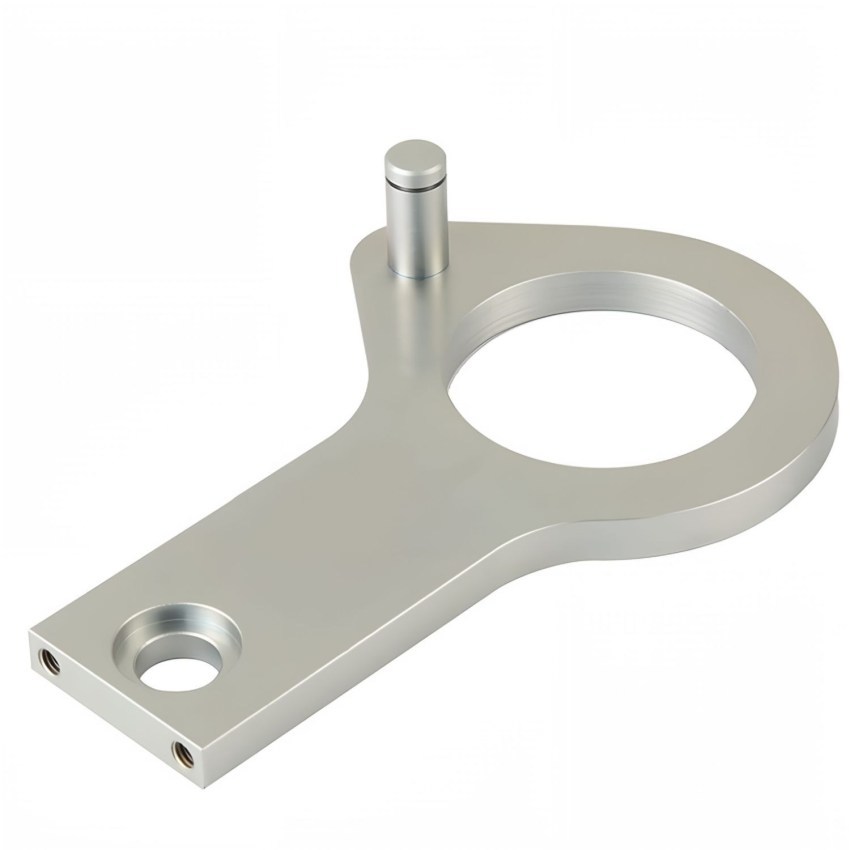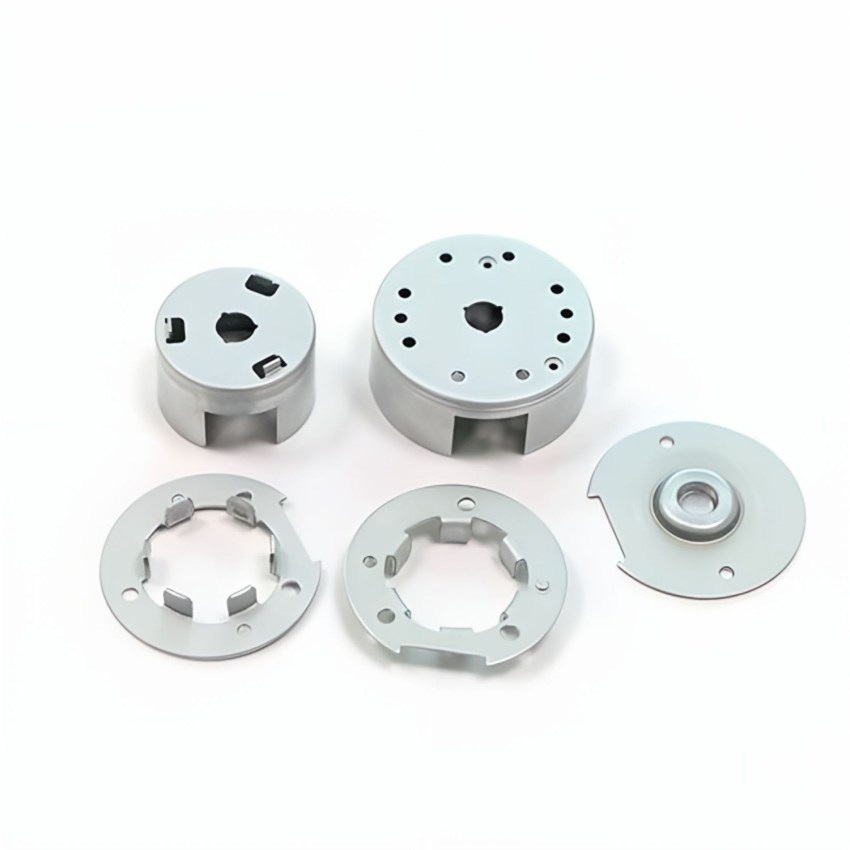Aluminum CNC Machining Parts: Navigating Supply Chain Challenges for Optimal Efficiency
Release time:
2025-03-21
Aluminum CNC Machining Parts: Navigating Supply Chain Challenges Table of Contents Introduction to Aluminum CNC Machining Understanding Supply Chain Challenges in CNC Machining Impact of Material Availability on Production Strategies for Managing Supply Chain Challenges Choosing the Right Supplier for Aluminum Parts Technological Advancements in CNC Machining Quality Control Measure

Aluminum CNC Machining Parts: Navigating Supply Chain Challenges
Table of Contents
- Introduction to Aluminum CNC Machining
- Understanding Supply Chain Challenges in CNC Machining
- Impact of Material Availability on Production
- Strategies for Managing Supply Chain Challenges
- Choosing the Right Supplier for Aluminum Parts
- Technological Advancements in CNC Machining
- Quality Control Measures in CNC Machining
- Case Studies: Successful Supply Chain Management
- Frequently Asked Questions (FAQs)
- Conclusion
Introduction to Aluminum CNC Machining
Aluminum CNC (Computer Numerical Control) machining has become a cornerstone of modern manufacturing, enabling precision and efficiency in the creation of intricate parts and components. This process involves the removal of material from an aluminum workpiece using computer-controlled machinery. The versatility of aluminum makes it a preferred choice in various industries, including aerospace, automotive, and electronics. However, navigating the challenges associated with the supply chain is crucial for maintaining a smooth production flow.
Understanding Supply Chain Challenges in CNC Machining
Supply chain challenges in aluminum CNC machining can stem from various sources, including global market fluctuations, material shortages, and logistical complications. Understanding these challenges enables manufacturers to develop proactive strategies that mitigate risks and ensure a consistent supply of high-quality materials.
Global Market Fluctuations
The demand for aluminum components has surged in recent years, often leading to significant price volatility. This fluctuation can impact the cost of raw materials, making budgeting and forecasting more challenging for manufacturers.
Material Shortages
Material shortages can arise from various factors, including geopolitical tensions, natural disasters, and production disruptions. These shortages can delay production timelines and lead to increased costs, affecting overall competitiveness in the market.
Logistical Complications
Transportation issues, such as delays in shipping or customs clearance, can disrupt the supply chain. Efficient logistics are critical for ensuring that materials arrive on time and that production schedules remain intact.
Impact of Material Availability on Production
Material availability plays a pivotal role in the CNC machining process. When aluminum is readily available, manufacturers can operate at peak efficiency, meeting customer demands and maintaining high-quality standards. Conversely, material shortages can lead to production delays, increased costs, and a potential loss of customer trust.
Effect on Lead Times
Lead times for CNC machined parts are heavily influenced by material availability. If suppliers face delays in delivering aluminum, manufacturers may struggle to meet project deadlines, which can result in lost contracts and revenue.
Quality Implications
The quality of aluminum components is directly tied to the quality of the raw materials used. Shortages can compel manufacturers to source lower-grade materials, ultimately compromising the integrity of the final product.
Strategies for Managing Supply Chain Challenges
To effectively navigate the complexities of the supply chain, manufacturers can implement several strategies that enhance resilience and adaptability.
Diversifying Suppliers
Relying on a single supplier can create vulnerabilities within the supply chain. By diversifying suppliers, manufacturers can mitigate risks associated with material shortages and price fluctuations.
Building Strong Relationships
Establishing strong relationships with suppliers fosters open communication and collaboration. This can lead to better negotiation terms, reliable delivery schedules, and access to priority service during shortages.
Investing in Inventory Management
Effective inventory management systems enable manufacturers to maintain optimal stock levels, reducing the impact of supply chain disruptions. Implementing just-in-time (JIT) methodologies can also help minimize excess inventory costs.
Utilizing Technology for Transparency
Leveraging technology, such as supply chain management software, can provide real-time insights into inventory levels, supplier performance, and potential risks. This transparency allows for informed decision-making and agile responses to supply chain challenges.
Choosing the Right Supplier for Aluminum Parts
Selecting a reliable supplier is crucial for ensuring a seamless supply chain. Several factors should be considered when evaluating potential suppliers.
Quality Assurance Standards
Look for suppliers that adhere to rigorous quality assurance standards. Certifications such as ISO 9001 indicate a commitment to maintaining high-quality processes and products.
Delivery Reliability
Assessing a supplier's reliability in terms of delivery times is essential. On-time delivery is critical for maintaining production schedules and satisfying customer demands.
Technical Expertise
A supplier with technical expertise can provide valuable insights and support throughout the machining process. Their knowledge can assist in optimizing designs and minimizing production costs.
Technological Advancements in CNC Machining
The CNC machining industry is continuously evolving, with technological advancements playing a significant role in enhancing efficiency and precision.
Automation and Robotics
Incorporating automation and robotics into CNC machining processes can significantly reduce labor costs and improve production speed. Automated systems can execute repetitive tasks with outstanding precision, allowing human operators to focus on more complex jobs.
Advanced CAD/CAM Software
Computer-Aided Design (CAD) and Computer-Aided Manufacturing (CAM) software facilitate the design and production of complex aluminum parts. These tools enable engineers to visualize products in 3D, optimize designs for manufacturability, and streamline production processes.
Smart Manufacturing
Smart manufacturing technologies, including the Internet of Things (IoT) and big data analytics, promote real-time monitoring and data-driven decision-making. By harnessing data from machines, manufacturers can identify inefficiencies, predict maintenance needs, and enhance overall operational performance.
Quality Control Measures in CNC Machining
Maintaining high-quality standards is essential for the success of aluminum CNC machining operations. Implementing robust quality control measures helps ensure that products meet specifications and customer expectations.
In-Process Inspection
Conducting in-process inspection during machining operations allows manufacturers to identify and rectify issues before they escalate. This proactive approach minimizes waste and reduces the likelihood of defects in finished products.
Final Quality Checks
Comprehensive final quality checks are crucial for ensuring that every part meets stringent quality standards. Employing precision measurement tools and techniques can help verify the accuracy and consistency of machined components.
Feedback Loops
Establishing feedback loops with customers can provide valuable insights into product performance. This information can be used to inform future designs and improve machining processes.
Case Studies: Successful Supply Chain Management
Examining real-world examples of successful supply chain management in aluminum CNC machining can provide insights and inspiration for manufacturers facing similar challenges.
Case Study 1: Aerospace Component Manufacturer
An aerospace component manufacturer faced delays due to material shortages. By diversifying their supplier base and investing in real-time inventory management software, they were able to enhance their supply chain resilience, reduce lead times, and improve customer satisfaction.
Case Study 2: Automotive Parts Producer
An automotive parts producer experienced fluctuations in aluminum prices that impacted their profitability. By establishing strong partnerships with suppliers and negotiating long-term contracts, they secured stable pricing and reliable material availability, enabling them to maintain a competitive edge.
Frequently Asked Questions (FAQs)
What is aluminum CNC machining?
Aluminum CNC machining is a manufacturing process that utilizes computer-controlled machines to precisely cut and shape aluminum materials into various parts and components.
What are the advantages of using aluminum in CNC machining?
Aluminum is lightweight, corrosion-resistant, and has excellent machinability, making it an ideal material for a wide range of applications, particularly in industries like aerospace and automotive.
How do supply chain challenges affect CNC machining operations?
Supply chain challenges can lead to material shortages, increased costs, and production delays, which ultimately impact a manufacturer's ability to meet customer demands and maintain quality standards.
What strategies can manufacturers employ to mitigate supply chain risks?
Manufacturers can diversify suppliers, invest in inventory management, build strong supplier relationships, and leverage technology for better transparency.
How can quality control be maintained in CNC machining?
Implementing in-process inspections, final quality checks, and feedback loops with customers can help ensure that products meet quality standards and specifications.
Conclusion
Navigating the supply chain challenges associated with aluminum CNC machining requires a multifaceted approach that encompasses strategic planning, strong supplier relationships, and technological integration. By understanding the intricacies of the supply chain and implementing effective management strategies, manufacturers can enhance their operational efficiency, reduce costs, and deliver high-quality products. In an ever-evolving market, staying informed and adaptable will be key to achieving long-term success in aluminum CNC machining.
Key words:




